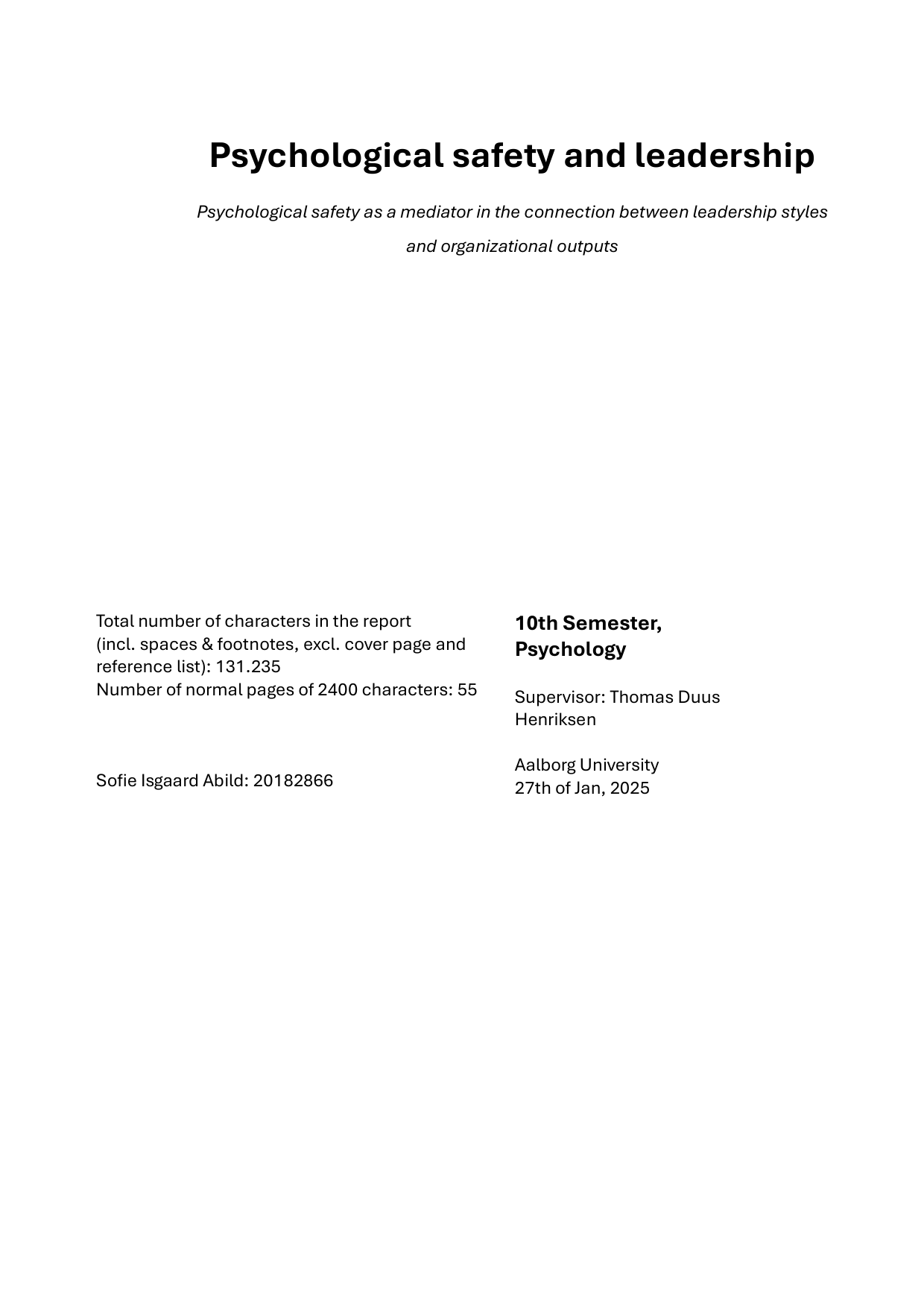
Psychological Safety and Leadership: Psychological safety as a mediator in the connection between leadership styles and organizational outputs
Translated title
Psychological Safety and Leadership
Author
Term
4. term
Education
Publication year
2025
Submitted on
2025-01-27
Pages
55
Abstract
Background: There has been growing interest in the concept of psychological safety in the previous 25 years. Psychological safety has been studied in relation to both leadership and organizational outputs. Despite the focus it has received, no previous reviews have explored the relationship between leadership, psychological safety and organizational outputs. Objective: To explore the connection between studied leadership styles and psychological safety in relation to organizational outputs by reviewing the research exploring this connection. Method: This study conducts a systematic literature review, using the PRISMA 2020 checklist. The systematic review is conducted through Aalborg University’s Database PRIMO. 214 were initially identified. After checking for duplicates as well as excluding articles which did not fit the scope, 12 articles remained. After completing a Risk of Bias assessment, one additional article was excluded. The final number of articles in the review was 11 (n=11). Results: The studies assessed the impact of 8 different leadership styles, each finding a positive effect on different organizational outputs. The relationship between ethical, humble, inclusive spiritual and servant leadership and organizational output was partially mediated by psychological safety. The relationship between transformational, ambidextrous and paradoxical leadership and organizational output was partially mediated by psychological safety. Discussion: Characteristics of the leadership styles reviewed were qualitatively evaluated to determine the specific leadership qualities hypothesized to promote psychological safety and, thusly, organizational output. This analysis revealed six leadership qualities that were hypothesized to foster psychological safety. A new leadership style termed Psychological Safety Leadership was proposed. Conclusion: Given that a positive relationship between the presented leadership styles and their organizational outputs was found, and that this relationship was in all instances either partially or fully mediated by psychological safety the hypothesis is supported.
Keywords
Documents
